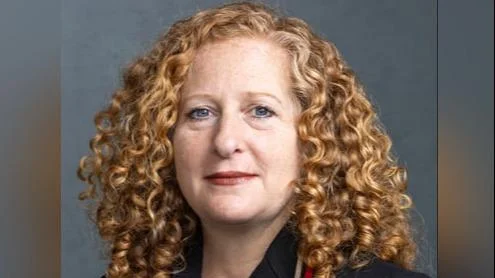Jennifer Mnookin Chancellor | Official website
Jennifer Mnookin Chancellor | Official website
The University of Wisconsin–Madison has achieved a significant milestone in research expenditures, reaching over $1.7 billion for the first time. This accomplishment places UW–Madison sixth among 920 public and private universities in the United States, according to the National Science Foundation's annual rankings.
"UW-Madison has been a research powerhouse for generations," said UW–Madison Chancellor Jennifer Mnookin. "This latest increase in both our research expenditures and our HERD ranking is further evidence of our deep commitment to bringing incredible UW–Madison expertise across disciplines to the grand challenges of our time and to translating our discoveries to improve lives at home in Wisconsin and beyond."
The NSF's data indicates a 13.7% increase in research expenditures at UW–Madison over the previous fiscal year, amounting to an increase of more than $208 million for the period covering July 2022 through June 2023. Nearly half of these expenditures come from federal awards from agencies such as NSF, the National Institutes of Health, and the Department of Defense.
Chancellor Mnookin and the Office of the Vice Chancellor for Research have focused on improving the university’s annual research expenditures. "UW–Madison’s research success, as evidenced by the HERD Survey, includes collaborative efforts to connect faculty to more funding opportunities," said Vice Chancellor for Research Dorota Brzezinska.
Significant funding highlights include a $29 million award from the National Institutes of Health for disease studies causing blindness, a $19 million USDA grant for dairy industry innovations, a $15 million award from the U.S. Office of Naval Research for traumatic brain injury research, and a $22.3 million grant from the Robert Wood Johnson Foundation for community health work.
In addition to federal funding, UW–Madison receives substantial support from non-profit organizations like the Wisconsin Alumni Research Foundation (WARF) and local government sources. In 2025, WARF will provide $159.8 million in support while committing an additional $15 million over three years towards artificial intelligence initiatives under RISE-AI.
Chancellor Mnookin also announced RISE-EARTH focusing on environmental challenges and RISE-THRIVE prioritizing healthspan improvements through new treatments.
According to data from the Wisconsin Idea Database project, UW–Madison maintains strong partnerships with over 3,000 state businesses and organizations annually, spending at least $360 million on goods and services.
In fiscal year 2023, federal research expenditures grew by 10% to $816 million; institutionally funded research rose by 17% to $543 million; non-profit support increased by 20% to $153 million; state and local government spending was up by 14% to $126 million; industry-sponsored research climbed by 14% to $46 million.
Several interdisciplinary centers at UW–Madison received federal funding renewals in fiscal year 2023 including Space Science Engineering Center, Institute on Aging, and Wisconsin Energy Institute.





 Alerts Sign-up
Alerts Sign-up